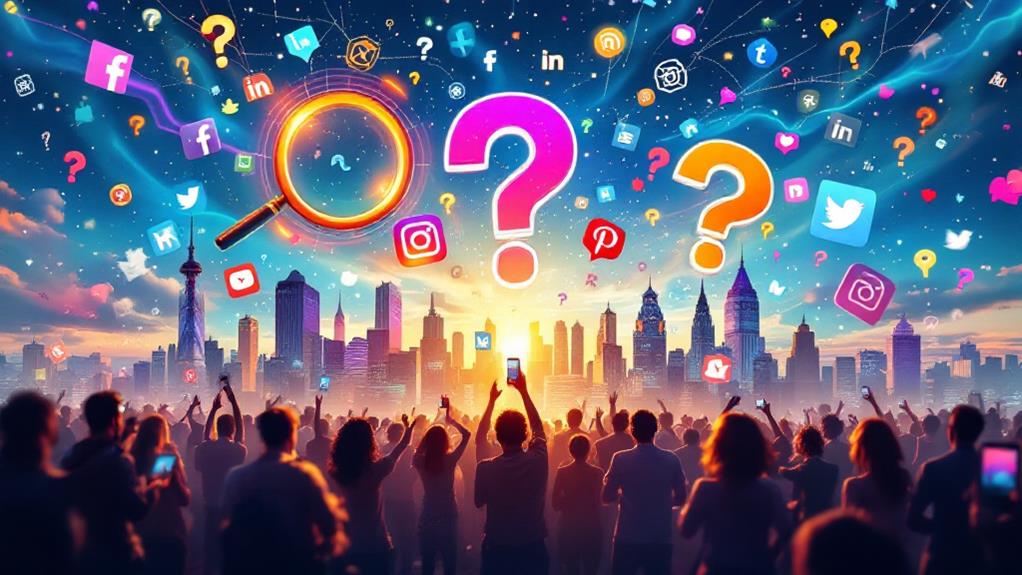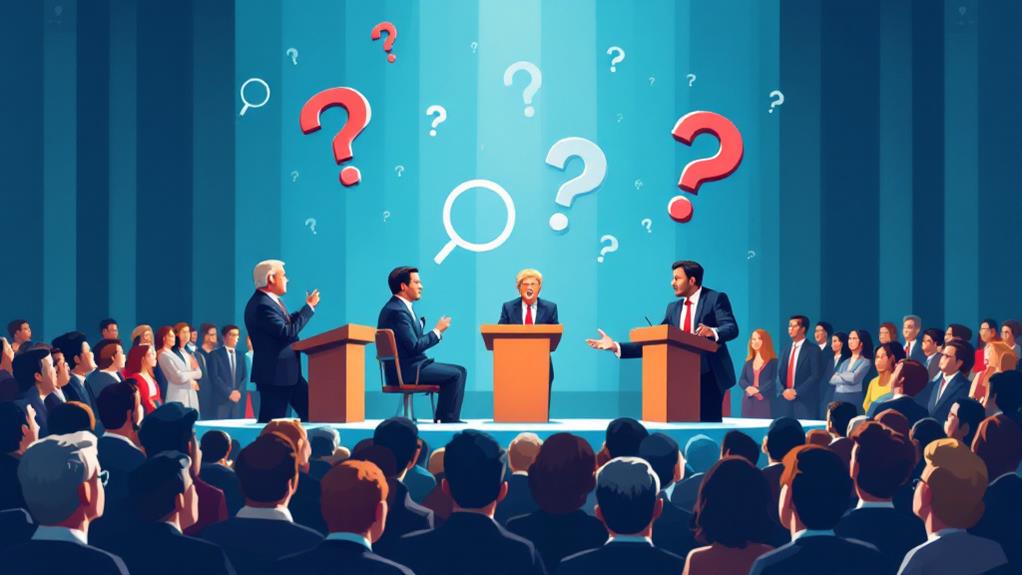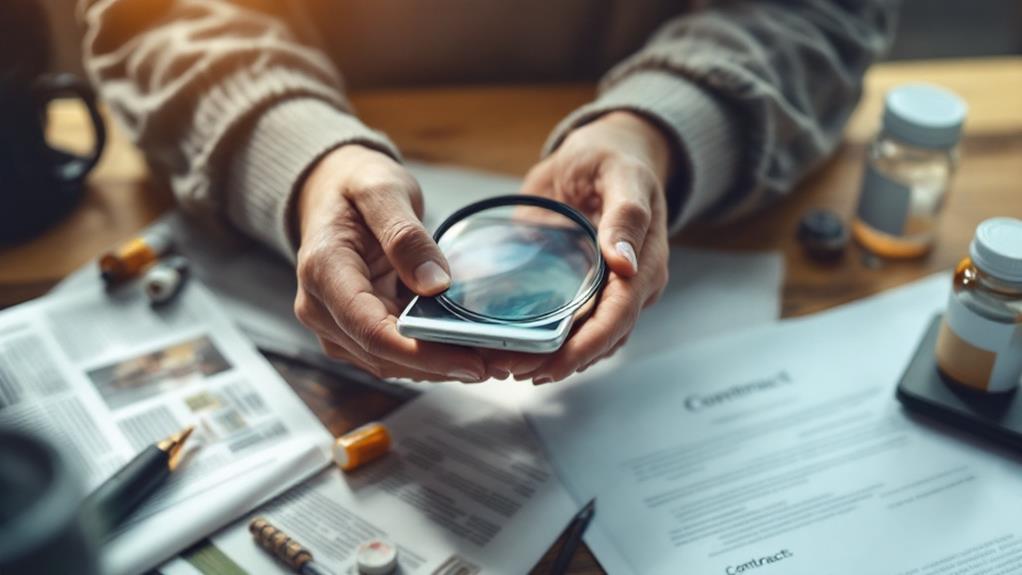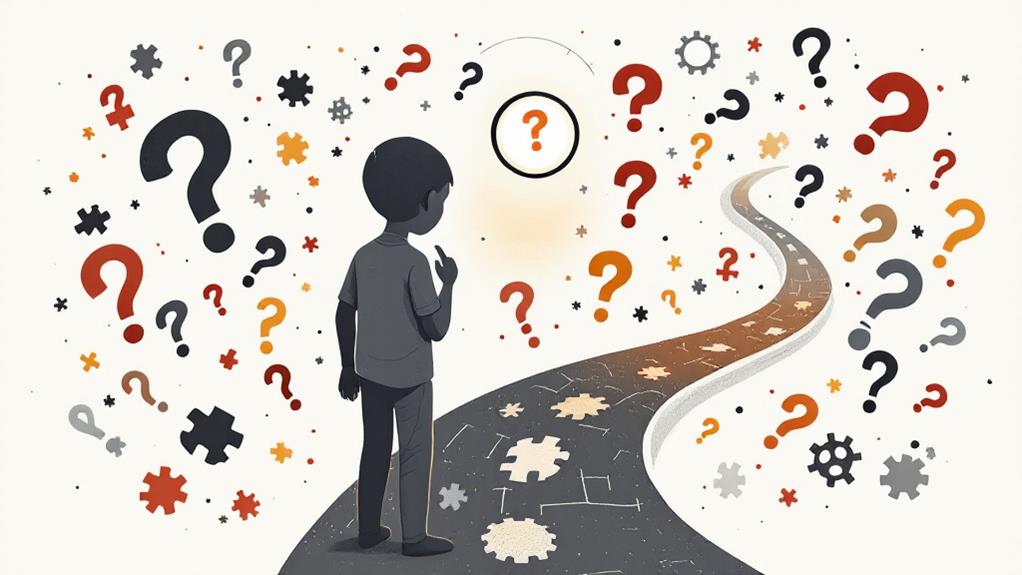What Is Modern Day Skepticism?

Modern day skepticism empowers you to question the validity of information in a world filled with digital misinformation and echo chambers. It's about critically evaluating claims by analyzing evidence, checking source credibility, and being aware of cognitive biases. With social media algorithms amplifying existing beliefs, fostering critical thinking skills is essential. This skeptical approach doesn't reject outright but encourages inquiry and informed judgment in science, politics, and everyday life. By cultivating a mindset that seeks multiple perspectives and facts, you manage misinformation and support personal growth. There's more to uncover about how skepticism shapes your understanding of reality.
The Evolution of Skepticism
Skepticism has come a long way from its philosophical roots in ancient Greece to its modern-day application in science and everyday life. You might find it fascinating that skepticism's historical origins started with philosophers like Pyrrho and Sextus Empiricus, who questioned the possibility of achieving absolute knowledge. These thinkers laid the philosophical foundations for skepticism by challenging the certainty of knowledge and urging people to withhold judgment in the face of uncertainty. Unlike cynicism, which tends to lean towards rejection, skepticism promotes inquiry and thoughtful questioning. As you explore deeper, you'll see how these early ideas transformed over centuries. During the Enlightenment, skepticism gained momentum as thinkers started applying it to religious doctrines and traditional beliefs. They encouraged questioning and critical thinking, which helped shape the modern scientific method. This approach requires rigorous testing and evidence before accepting claims as true, embodying the essence of skepticism.
In your everyday life, skepticism encourages you to critically evaluate information and claims, ensuring you're not easily swayed by unfounded assertions. By understanding skepticism's historical origins and philosophical foundations, you're better equipped to navigate a world full of complex ideas and opinions. Adopt skepticism as a tool for seeking truth and making informed decisions in a constantly changing landscape.
Digital Information Overload

In the present technological period, you're constantly bombarded with a barrage of information from countless sources, making it challenging to discern fact from fiction. Every day, you encounter an overwhelming amount of news articles, social media posts, and digital content that demand your attention. With so much information at your fingertips, it becomes vital to practice information validation. This involves scrutinizing the reliability of sources and cross-referencing facts before forming opinions or making decisions. The spread of misinformation can have real-world consequences, as seen in the Pizzagate conspiracy that led to violence based on baseless claims. The sheer volume of available information can lead to cognitive dissonance, where conflicting data causes mental discomfort. You may find yourself juggling multiple, contradictory pieces of information, struggling to reconcile them. This dissonance can make you more susceptible to misinformation if you're not diligent about verifying sources. It's easy to latch onto familiar narratives that align with existing beliefs rather than challenge them. To navigate this digital overload, you must adopt a critical mindset. Question the credibility of what you read and seek out diverse perspectives. By doing so, you'll be better equipped to filter out noise and focus on what's accurate and meaningful. Welcome skepticism as a tool for clarity in an time saturated with information.
The Role of Social Media

While maneuvering through the complexities of modern information, social media plays an essential role in shaping your perception of reality. You've probably noticed how platforms like Twitter, Facebook, or Instagram influence what you see and think. The content you engage with is guided by algorithms designed to show you more of what you already like, reinforcing your existing beliefs. These online echochambers can make it difficult to distinguish between fact and fiction.
Consider how social media influence manifests in your daily life:
- Confirmation Bias: You see posts that align with your beliefs, which can make you feel more confident in your views, regardless of their accuracy.
- Polarization: Discussions can become heated, dividing groups into 'us vs. them' camps, often leading to more extreme viewpoints.
- Virality Over Validity: The most shared stories aren't always the most truthful, but they're the ones that capture your attention.
- Selective Exposure: You may only follow or engage with voices that echo your own, limiting exposure to opposing perspectives.
Understanding these dynamics helps you navigate the online environment more critically. Recognize the power of social media influence and work to break free from online echochambers, seeking diverse viewpoints for a well-rounded understanding.
Science and Skepticism

Often, you find yourself questioning scientific claims, especially in a period where information is abundant and opinions are rampant. Your skepticism isn't unfounded—it's a vital part of engaging with the world responsibly. Scientific literacy plays an essential role here; it's about understanding the methods and principles that drive scientific inquiry, allowing you to separate fact from fiction. When you improve your scientific literacy, you become better equipped to evaluate claims and understand the weight of empirical evidence.
Empirical evidence is the backbone of credible scientific claims. It's derived from observations, experiments, and data analysis. When you encounter a scientific claim, consider the evidence supporting it. Is it based on rigorous studies and peer-reviewed research? Or is it merely anecdotal? By critically evaluating the evidence, you can determine the validity of the information presented.
It's significant to engage with science actively and critically, asking questions and seeking reliable sources. In doing so, you cultivate a mindset that values truth and accuracy over sensationalism. Remember, healthy skepticism fosters a deeper understanding of the world, empowering you to make informed decisions in your daily life.
Skepticism in Politics

The same critical eye you apply to scientific claims should also focus on political discourse. In the current environment, political bias and misinformation are rampant, making it vital to question and scrutinize the information presented to you. Politicians and media outlets often have agendas, which can lead to skewed narratives. By actively questioning these narratives, you can better understand the truth.
Consider these points when engaging with political information:
- Check the source: Always evaluate the credibility of the source providing the information. Is it known for factual reporting, or does it have a history of spreading misinformation?
- Identify political bias: Recognize the political leanings of the source. Are they promoting a particular ideology, and how might that influence their message?
- Investigate conspiracy theories: Be cautious of information that seems overly simplistic or relies on a grand conspiracy. Such theories often lack evidence and can distract from real issues.
- Cross-reference facts: Compare information across multiple reputable sources to verify consistency and accuracy.
Misinformation and Critical Thinking

In the current technological age, misinformation spreads rapidly, making critical thinking an essential skill in discerning fact from fiction. You must develop media literacy to navigate the overwhelming flow of information. This means understanding different media forms and recognizing how they might manipulate facts. Cognitive biases often cloud judgment, so becoming aware of these can help you avoid misleading outcomes.
To combat misinformation, use fact-checking tools to verify claims. These tools aid in information verification by cross-referencing data with reliable sources. Always assess source credibility; not all information is created equal. Reputable sources typically cite evidence and present balanced views, so look for these indicators.
Analytical reasoning plays a key role in discerning truth. It involves breaking down complex information into understandable parts and evaluating evidence before forming outcomes. Evidence evaluation requires you to ask critical questions: Is the information supported by data? Are the sources unbiased? By applying these techniques, you can sift through the noise and focus on what's factual.
Misinformation is rampant, but with the right tools and mindset, you can protect yourself from falsehoods and stay informed. Remember, critical thinking is your best defense against deception.
Skepticism in Everyday Life

While steering daily decisions, skepticism serves as a valuable tool for questioning the world around you. It's not just about doubting for the sake of doubting; it's about critically evaluating information and claims that impact your life. This mindset helps you navigate a sea of personal beliefs and societal influences, ensuring your choices align with your true values.
Consider the following everyday scenarios where skepticism plays a vital role:
- Advertisements: Instead of taking every claim at face value, you scrutinize the promises made by products, questioning their authenticity and effectiveness.
- News Stories: You don't blindly accept headlines. Instead, you seek multiple sources to confirm the facts, ensuring a well-rounded understanding of current events.
- Health Advice: When faced with diverse health recommendations, you critically assess the evidence before implementing changes to your lifestyle.
- Social Media: You remain cautious about the information shared online, understanding that societal influences can distort facts through viral trends and echo chambers.
Psychological Aspects of Doubt

Doubt plays a crucial role in shaping your cognitive processes and emotional responses. When you experience doubt, it challenges your perceptions and beliefs, compelling you to reassess information and consider alternate perspectives. This introspection can help you recognize cognitive biases, those mental shortcuts that often lead to errors in judgment. By questioning these biases, you increase your ability to think critically and make more informed decisions.
Emotionally, doubt can initially feel unsettling, but it also fosters emotional resilience. When you grapple with uncertainty, you learn to manage anxiety and stress, building a stronger capacity to handle future challenges. Accepting doubt doesn't mean you're indecisive; rather, it shows you're willing to navigate complexity and welcome growth.
However, it's important to strike a balance. Too much doubt can paralyze you, leading to indecision and inaction. Conversely, dismissing doubt entirely might result in overconfidence and poor decisions. By acknowledging doubt and understanding its psychological aspects, you can use it as a tool for growth. It encourages a more nuanced view of the world, helping you navigate life's complexities with a sharper mind and a steadier heart.
Developing a Skeptical Mindset

A skeptical mindset is a powerful tool that empowers you to question assumptions and seek truth in a world overflowing with information. By engaging in critical inquiry, you challenge the status quo and resist taking things at face value. This approach enables you to navigate through the noise by employing analytical reasoning. How do you cultivate such a mindset?
- Question Everything: Don't accept statements without evidence. Ask "Why?" and "How do you know?" to probe deeper.
- Verify Sources: Always check the credibility of your information sources. Trustworthy sources are key to informed outcomes.
- Embrace Uncertainty: Understand that not all questions have clear answers. Be comfortable with ambiguity and open to adapting your views.
- Reflect on Biases: Be aware of your own biases and how they might color your perception of facts.
Cultivating these habits sharpens your ability to discern fact from fiction. Through critical inquiry, you learn to identify logical fallacies and contradictions. Analytical reasoning helps you synthesize information from diverse perspectives, leading to well-rounded outcomes. Developing a skeptical mindset doesn't mean rejecting everything; it's about being open-minded yet discerning, ensuring your beliefs are grounded in evidence and rational thinking.



